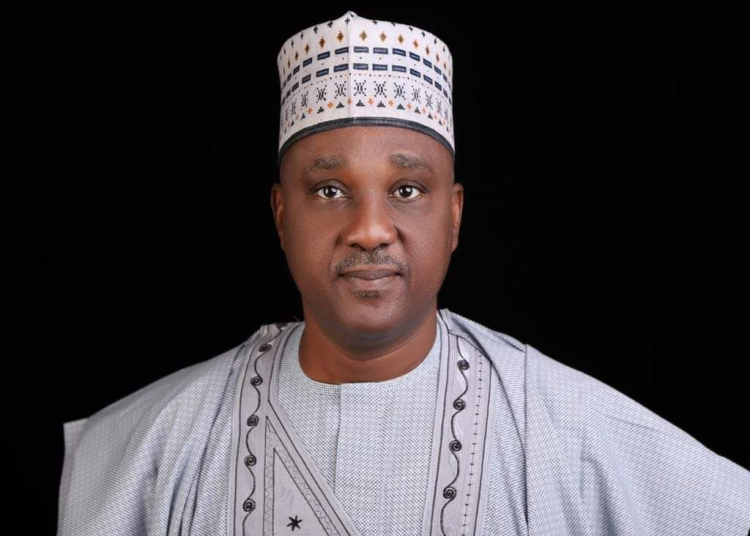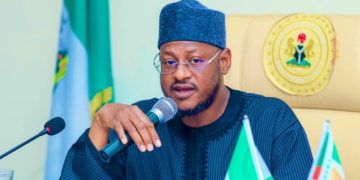Speaker of the House of Representatives, Rt. Hon. Abbas Tajudeen has called for establishing parliamentary diplomacy to fast-track frameworks for medical exchanges, academic recognition, joint research, and targeted investments between Nigeria and Cuba.
He emphasised, however, that such parliamentary diplomacy must lead to tangible outcomes, including the signing of Memoranda of Understanding (MoUs), ratified agreements, and funded programmes.
Speaker Tajudeen made the remarks in Abuja on Sunday while receiving a Cuban delegation led by Hon. Fernando González Llort, a national hero of Cuba, member of the National Assembly of the People’s Power of Cuba (ANPP), and President of the Cuban Institute of Friendship with the Peoples (ICAP).
The Speaker, represented by the Deputy Speaker of the House, Rt. Hon. Benjamin Kalu praised the diplomatic ties between the two countries and called for the strengthening of bilateral relations.
He outlined strategic focus areas, including parliamentary and health diplomacy, trade and culture, biotechnology, and pharmaceuticals, noting that implementing these would help establish a robust parliamentary partnership.
“Nigeria’s foreign policy, guided by the principles of African solidarity and cooperation across the Global South, prioritises partnerships that promote peace, development, and shared prosperity. The 10th Assembly is committed to advancing this through laws that enable economic cooperation, cultural exchange, and global dialogue.
“We also recognise Cuba’s legacy of parliamentary solidarity — from decolonisation struggles to calls for global equity. It is both strategic and moral to formalise collaboration where our legislatures can deliver through law-making, institutional strengthening, and parliamentary diplomacy that yields tangible benefits for our peoples.
“Our tools are laws, oversight, and convening power. The Nigeria–Cuba Parliamentary Friendship Group provides a platform to fast-track frameworks for medical exchanges, academic recognition, joint research, and targeted investments. Parliamentary diplomacy must yield real outputs: MoUs, ratified agreements, and funded programmes.”
The Speaker noted that bilateral trade between the two nations remains minimal. According to UN Comtrade reports, Nigeria’s imports from Cuba amounted to just US$2,380 in 2024.
“Yet our cultural ties run deep — in music, sports, and literature. Let us convert this affinity into opportunities for artisans, agri-entrepreneurs, and the creative industries.”
On education, skills, and youth exchange, he stressed the importance of equipping Nigeria’s growing youth population with 21st-century skills.
“Scholarships in Cuba, paired with Nigerian internships and reciprocal placements, can produce professionals fluent in international cooperation.”
Tajudeen also praised Cuba’s globally recognised healthcare system: “Cuba’s record is proven — over 1,200 doctors in 21 ‘Henry Reeve’ brigades and tens of thousands still deployed worldwide. Joint training, health expertise exchanges, and co-developed treatments can strengthen Nigeria’s health systems.”
He highlighted Nigeria’s focus on affordable medicines and vaccine production capacity, suggesting that Cuban expertise — including developing the Abdala COVID-19 vaccine (92% effective against severe disease in published studies) — presents a valuable opportunity for collaboration.
“Partnerships in research, technology transfer, and pilot manufacturing can boost vaccine production, protect public health, and create jobs while advancing Africa’s self-sufficiency.”
The Speaker emphasised that Nigeria views the relationship as a balanced exchange, not a one-sided benefit.
“We value Cuba’s achievements in health, biotechnology, and education. Likewise, Cuba can benefit from Nigeria’s 200 million-strong market, rich natural resources, vibrant creative industries, and continental leadership.
“From energy and agriculture to pharmaceuticals, tourism, sports, and culture, the opportunities are diverse and compelling. This is true reciprocity: Cuba brings tested knowledge, Nigeria offers scale and opportunity — and together, we can uplift our peoples and the wider Global South.”
Calling for meaningful follow-through, he urged the visit to begin a structured and impactful partnership between the Nigerian Parliament and Cuba’s National Assembly.
“The path ahead requires candid conversations on capacity, financing, and mutual benefit. Our agreements must guarantee technology transfer, fair intellectual property protection, and local value chains that translate into jobs, clinics, and stronger universities.
“Let this visit be more than protocol. It must mark the beginning of concrete frameworks between the Nigerian Parliament and Cuba’s National Assembly, and a people-to-people compact linking Abuja to Havana, Lagos to Santiago, and even Bende to Camagüey.
“As lawmakers, we stand ready to advance the legislative instruments — whether in cultural diplomacy, trade, or education — that will give this partnership lasting form.”
In their respective remarks, Cuban Ambassador to Nigeria, Miriam Morales Palmer, and Hon. Fernando González Llort lauded the long-standing relationship between both nations, saying discussions are ongoing on several areas of mutual interest.
Llort also invited the Deputy Speaker to visit Cuba to exchange views on parliamentary diplomacy and other areas of mutual benefit.





